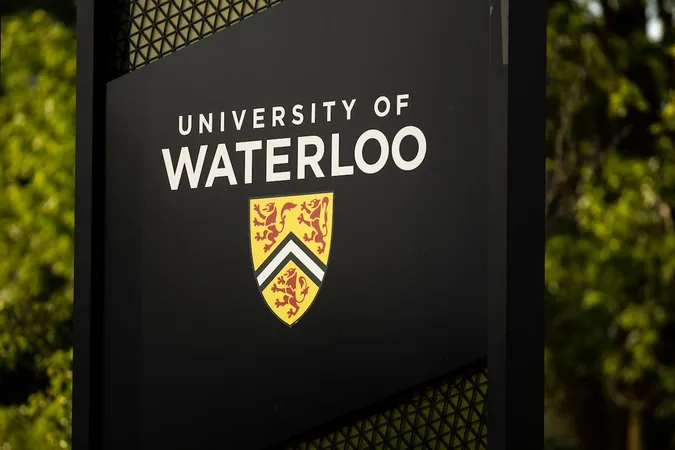
International Graduates from Waterloo Outshine Canadian Peers in Earnings and Residency Success, Experts Urge Policy Reforms
2024-10-09
Author: Sophie
International graduates from the University of Waterloo are leaving their Canadian-born peers in the dust, according to groundbreaking research published by a team of economists. The study highlights that these international alumni not only earn significantly more on average than their Canadian counterparts but also transition to permanent residency at nearly double the national rate.
Amid criticism of Canada’s international student program, the research team, led by Waterloo economist Mikal Skuterud, advocates for a shift in immigration policies focusing on attracting high-caliber students from around the globe. Their findings suggest that a “quality over quantity” strategy could not only bolster the economy but also enhance the country’s long-term prosperity.
The past decade has seen Canada’s international student population surge to over one million in 2024, injecting billions into its educational institutions. However, a recent federal government decision to reduce visa issuances by 35% this year and an additional 10% next year, prompted by housing market strains, has raised concerns about the future of the program.
Skuterud and his colleagues, Joel Blit and Ruiwen Zhang, were able to analyze an extensive dataset linking student performance and immigration records from over 86,000 graduates from 2005 to 2021. Their working paper, published last month by the Canadian Labour Economics Forum, reveals startling statistics: international graduates from Waterloo earned an average salary of $57,500 just one year after graduation—37% more than Canadian-born students, who earned about $42,000.
The researchers attribute this earnings gap mainly to the fields of study pursued by international students, such as engineering and computer science, which typically offer higher salaries. Moreover, the university has advanced its selection process over the years, leading to a cohort of international graduates that consistently perform better.
However, not all international graduates fared equally. The study also found that those earning lower wages tended to have weaker English skills or lower academic grades, illustrating the correlation between language proficiency and financial success.
In a notable observation, about 70% of Waterloo’s international graduates transitioned to permanent residency, compared to just 30% to 40% nationwide for international students holding a bachelor’s degree. Howard Skuterud claims this demonstrates the need for Canada to refine its immigration strategy to maximize economic benefits from educated immigrants.
He proposes the implementation of a comprehensive ranking system that prioritizes fields of study and the reputation of educational institutions. Currently, the system treats all degrees equally, failing to account for prestigious programs that lead to superior post-graduation outcomes.
The rising number of international students choosing colleges over universities is also a growing concern. In the 2021-22 academic year, over a quarter of Ontario’s publicly funded colleges hosted more international students than domestic ones. The Ontario government's heavy allocation of international study permit applications to colleges—80% versus only 15% to universities—has been criticized as prioritizing quantity over quality, potentially diminishing the economic advantage stemming from higher-earning graduates.
As Canada navigates this evolving educational landscape, experts assert that the country must be strategic in selecting future permanent residents who demonstrate high potential for economic contribution. “Every time you prioritize a college business diploma holder over a computer science graduate from Waterloo, you are making a significant misstep,” Skuterud warns.
The findings from the University of Waterloo not only shed light on the tremendous value international graduates can bring but also prompt a national conversation about the future direction of Canada’s immigration policies. With the right adjustments, Canada could truly become a haven for global talent, ultimately benefiting its economy and society.









 Brasil (PT)
Brasil (PT)
 Canada (EN)
Canada (EN)
 Chile (ES)
Chile (ES)
 España (ES)
España (ES)
 France (FR)
France (FR)
 Hong Kong (EN)
Hong Kong (EN)
 Italia (IT)
Italia (IT)
 日本 (JA)
日本 (JA)
 Magyarország (HU)
Magyarország (HU)
 Norge (NO)
Norge (NO)
 Polska (PL)
Polska (PL)
 Schweiz (DE)
Schweiz (DE)
 Singapore (EN)
Singapore (EN)
 Sverige (SV)
Sverige (SV)
 Suomi (FI)
Suomi (FI)
 Türkiye (TR)
Türkiye (TR)